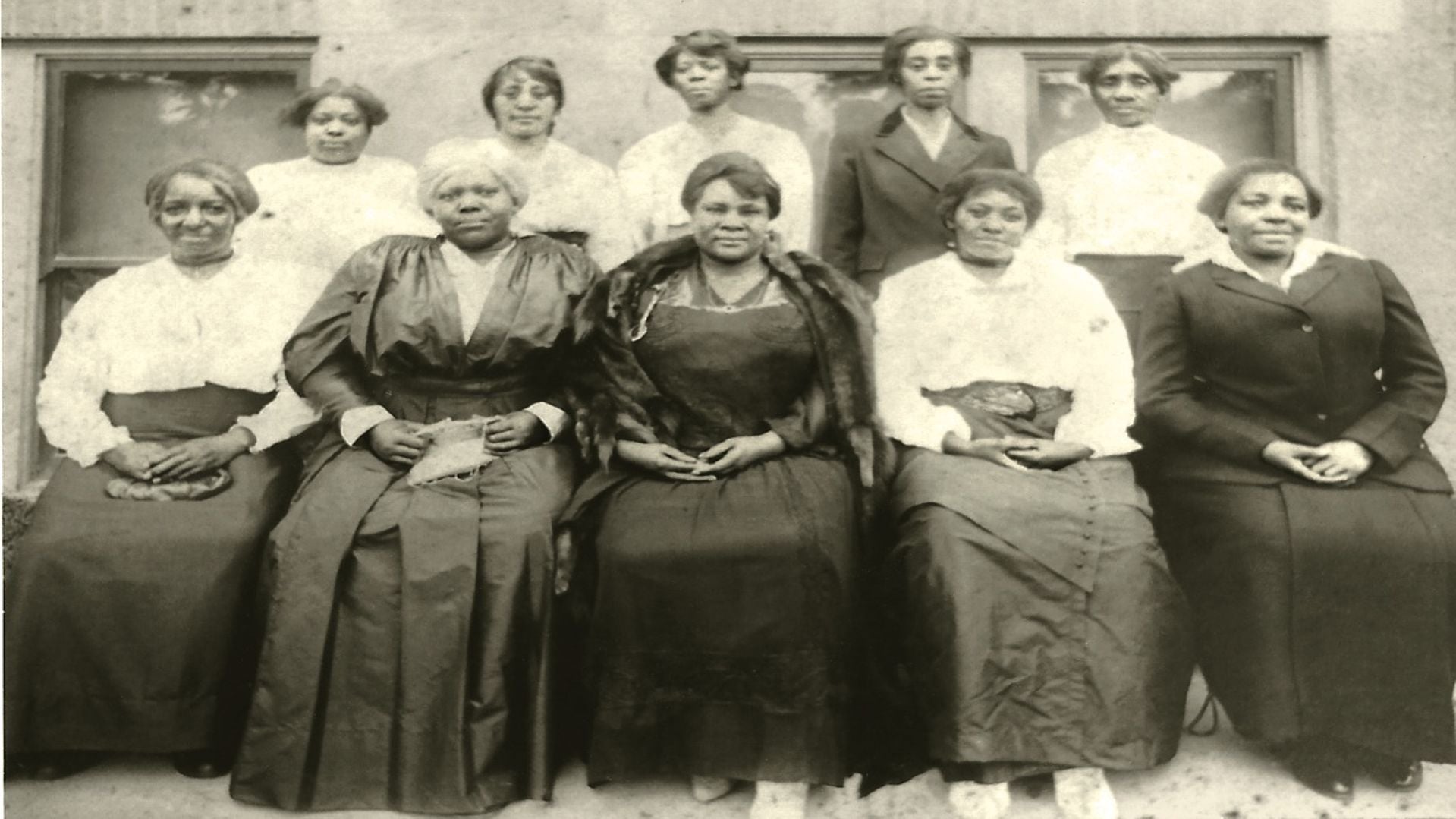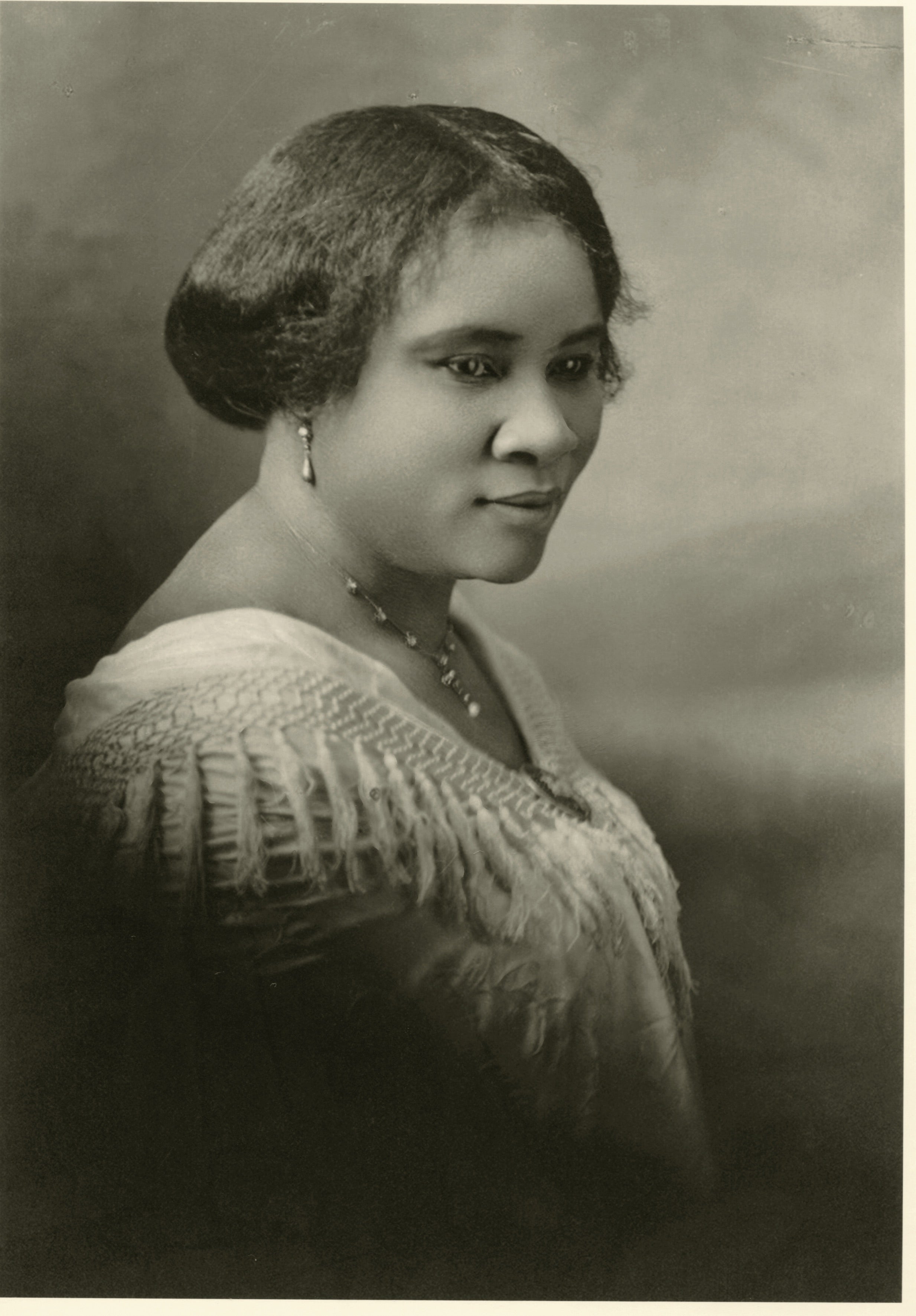
For more than 40 years, I’ve had the privilege of writing books, articles and speeches about my great great-grandmother Madam C.J. Walker, the entrepreneur and philanthropist who died 100 years ago this May 2019. On my journey I’ve learned about the fierce sisterhood she shared with women like journalist Ida B. Wells and educator Mary McLeod Bethune.
As she traveled, Madam Walker was often asked the secret to her success. How had she gone from washing other peoples’ laundry to being a boss with a sales force of several thousand agents in less than a decade? “There is no royal, flower-strewn road to success, and if there is, I have not found it,” she told a reporter in 1919. “For what success I have obtained is the result of many sleepless nights and real hard work.”
She also famously said, “I got my start by giving myself a start!” She knew that diligence alone was not sufficient, so she learned to harness the kind of personal power that would motivate others. When she arrived at Booker T. Washington’s National Negro Business League convention in Chicago in 1912 without a formal invitation, she requested a few minutes to share her story.
On the final day, when she realized that Washington was not going to give her the chance to address the delegates, she took matters into her own hands. As the last banker completed his report, she rose from her seat, looked toward -Washington and said: “Surely you are not going to shut the door in my face. I am a woman who came from the cotton fields of the South. From there I was promoted to the washtub. Then I was promoted to the cook kitchen, and from there I promoted myself into the business of manufacturing hair goods and preparations.
I have built my own factory on my own ground!”
At that moment Washington—then considered the most politically influential Black man in America—witnessed Madam Walker’s power. He could not ignore her charisma and the effect she’d had on his audience. The next year he invited her back as a keynote speaker. Madam Walker had taken a risk. She had embraced her strength and used it strategically. She had stood up when there were many forces telling her, a Black woman, to sit down and remain silent.
Her resolve came in part from her desire to boost other women. “I am not merely satisfied in making money for myself, for I am endeavoring to provide employment for hundreds of women of my race,” she once said. She believed entrepreneurship could provide a path to prosperity for African-Americans, who faced racist Jim Crow laws that shut them out of jobs and stripped them of their rights.
Her own early life had been bleak. She was born Sarah Breedlove in December 1867 on the same Delta, Louisiana, plantation where her parents and older siblings had been enslaved before the Civil War. She was orphaned at 7 and married at 14 to escape her abusive brother-in-law. A mother at 17, she was widowed at 20 and went to work as a laundress in St. Louis until she was 38.








Along the way she had the good fortune to be mentored by the women of St. Paul African Methodist Episcopal Church. They helped her envision herself as something other than an impoverished washerwoman. As a member of the choir and the missionary society, she observed the impact of women working collectively on behalf of other women.
At her first Madam C.J. Walker Beauty Culturists convention in 1917, she awarded prizes to the women who had sold the most products or whose local Walker clubs had raised the most money for charitable causes. At the end of the convention, the delegates sent a telegram to President Woodrow Wilson urging him to support legislation to make lynching a federal crime. “I want my agents to feel that their first duty is to humanity,” Madam Walker -announced at her second annual convention. “I shall expect to find my agents taking the lead not only in operating a successful business but in every movement in the interest of our colored citizenship.”
I have come to believe that Madam Walker began to see the sale of her Wonderful Hair Grower and Glossine as a means to a more ambitious end. It’s surely significant that she became a millionaire and a pioneer of what is now the multibillion-dollar international hair care and cosmetics industry. Her products were innovative and revolutionary at a time when few brands addressed the hair care and scalp health needs of Black women. But she saw that her clients’ most pressing concerns transcended hair: Education and financial opportunities were even more scarce. Her story remains relevant because she used her wealth and influence to make a difference as an educator, a patron of the arts, an advocate for women and a political activist.
Madam Walker was also a marketing genius with a knack for identifying talented leaders and cultivating a skilled executive team. A diploma from the Lelia College of Beauty Culture—named for her daughter, A’Lelia Walker—was a credential for the side hustle that allowed generations of Black women to buy real estate, support community organizations and pay college tuition for their children. In her will she bequeathed $100,000 ($1.4 million in today’s dollars) to Black schools, institutions, individuals and causes, including $5,000 to the NAACP’s antilynching fund.
I’m grateful that her legacy is thriving with the Madam C.J. Walker Beauty Culture hair care line; at Villa Lewaro, her Irvington, New York, mansion, which will become a think tank for women entrepreneurs of color; and at the Madam Walker Legacy Center, a national historic landmark in Indianapolis. As we commemorate this centennial anniversary of Madam Walker’s death, I am amazed that she is inspiring a new generation. In every possible way, the deck was stacked against her, just as it remains stacked against us. But she discovered her power and claimed it—and then brought others into the fold. That is her lasting lesson.








